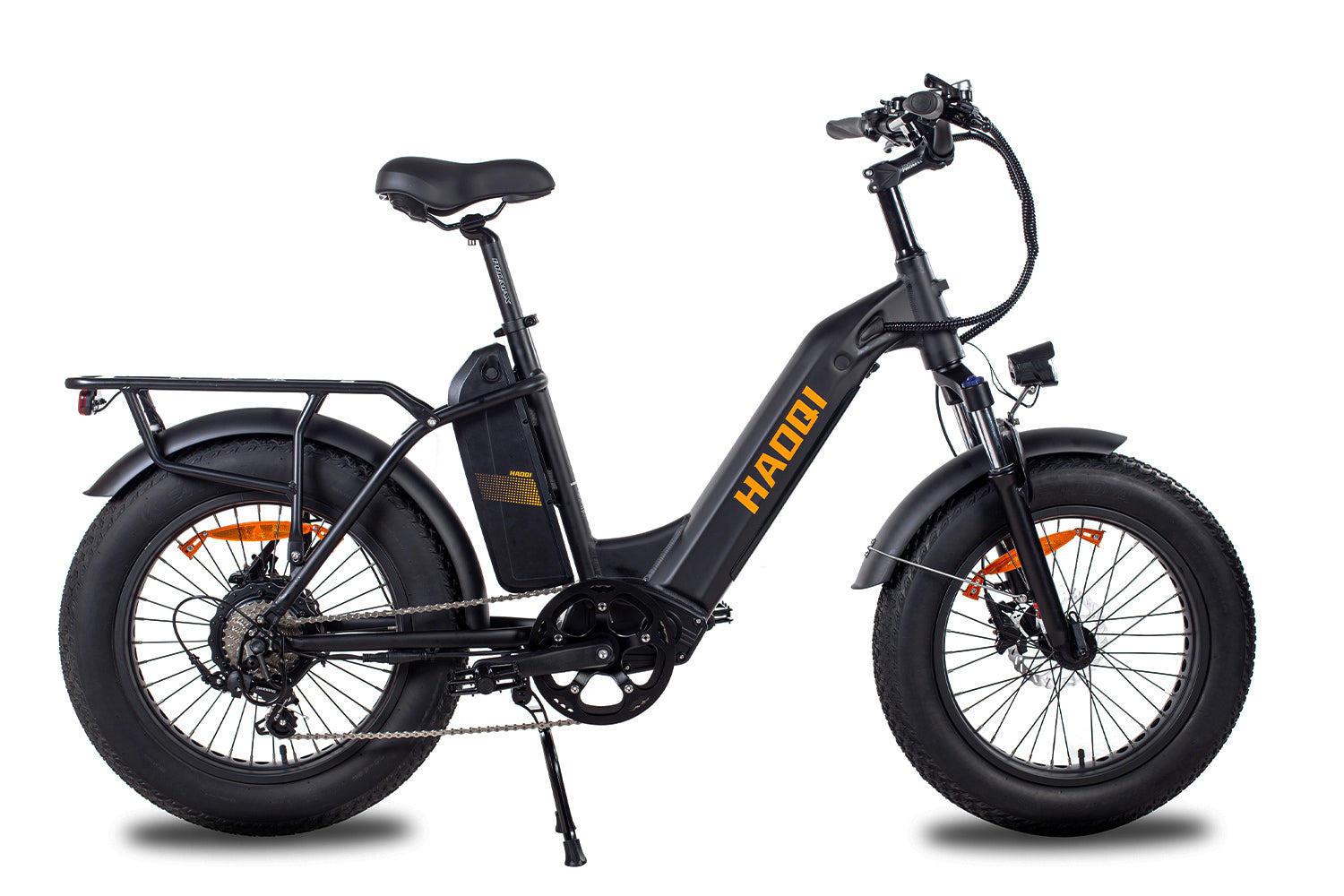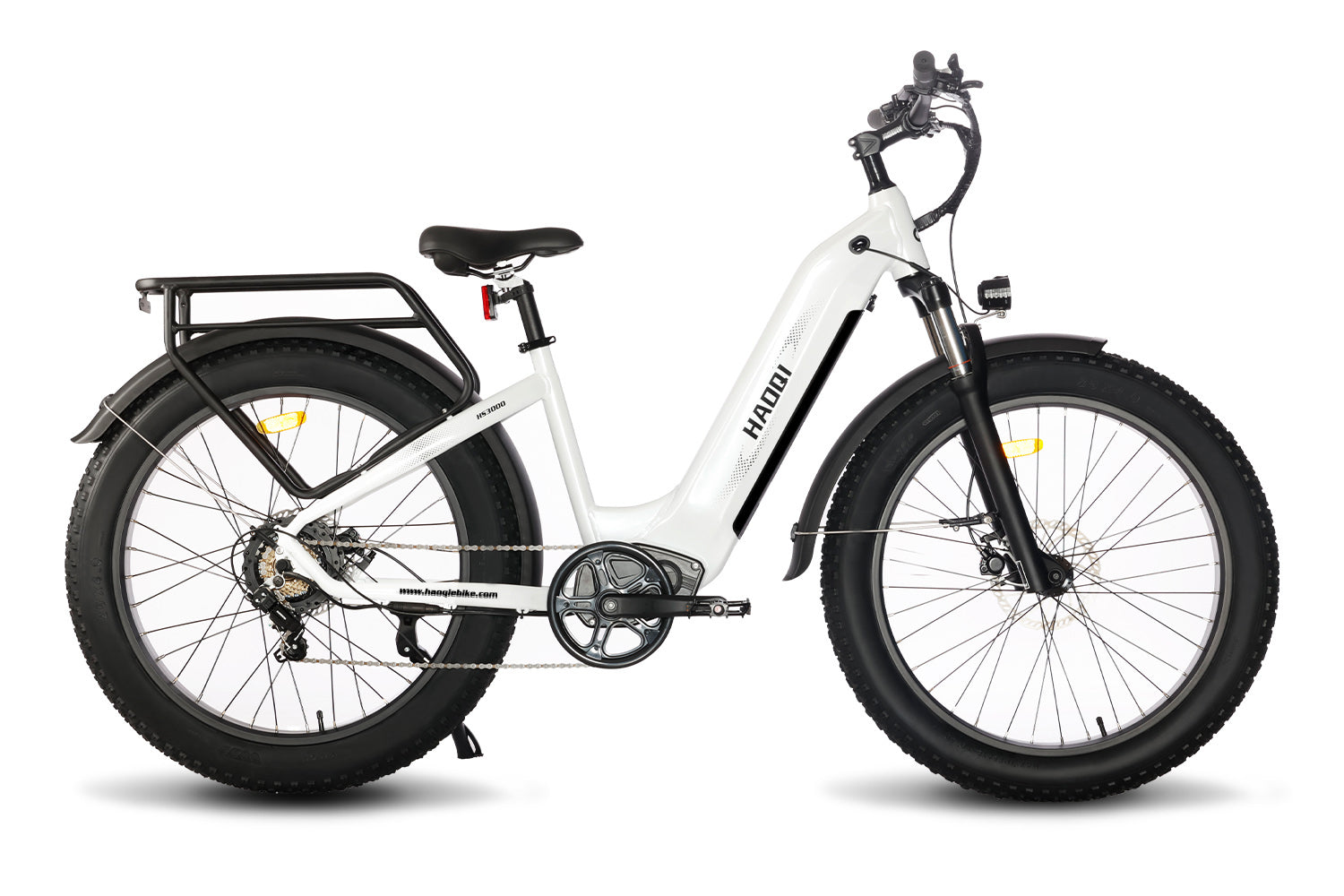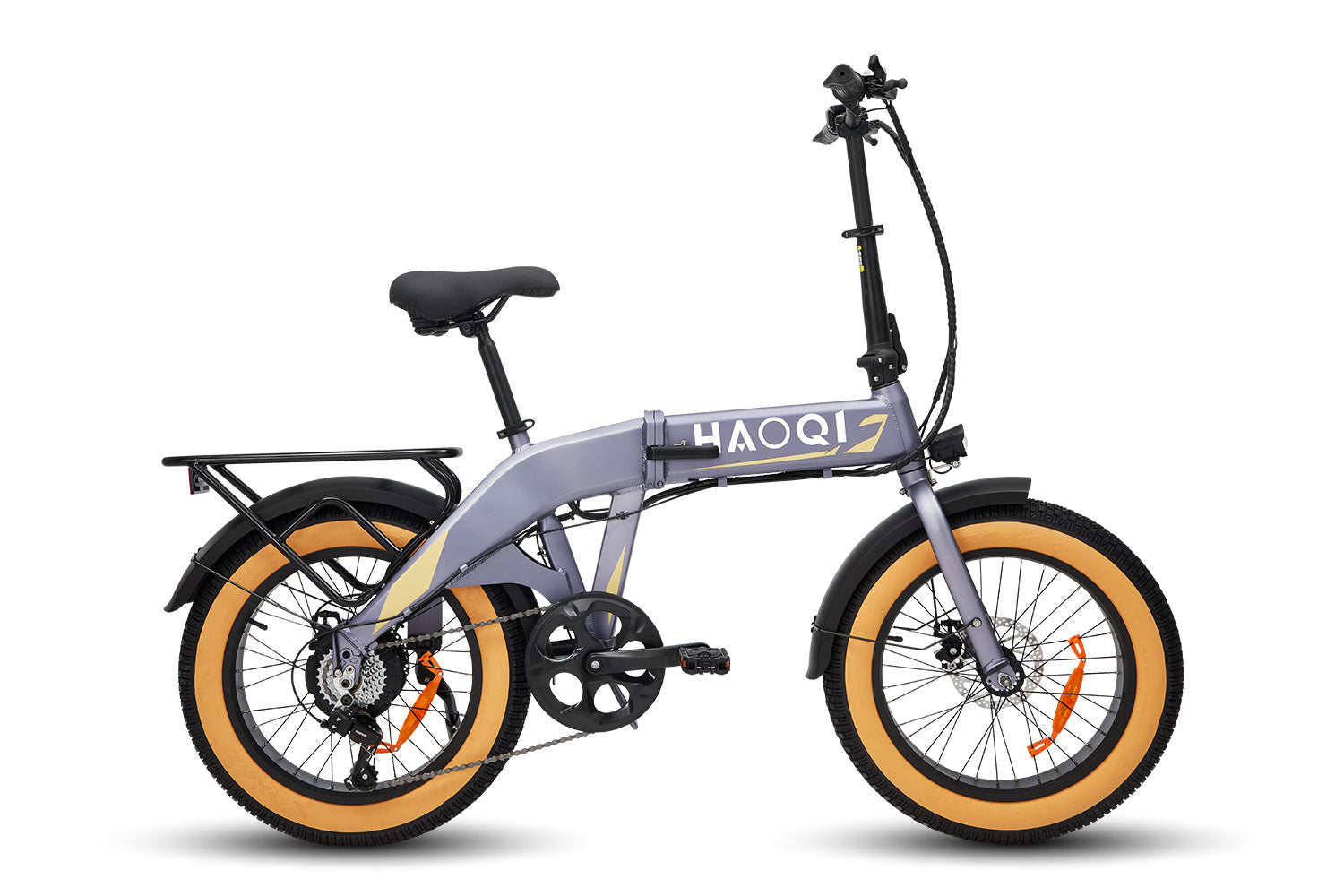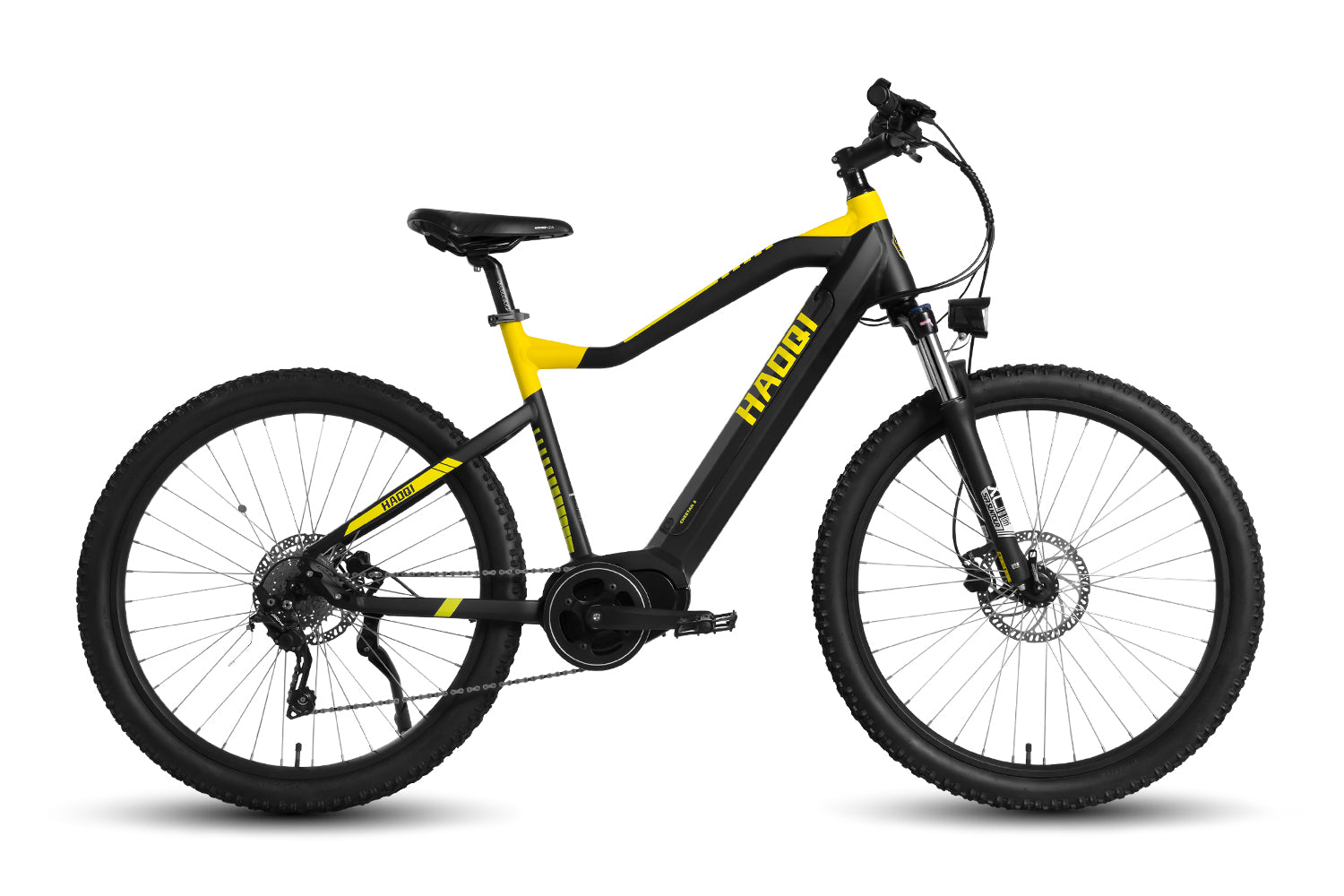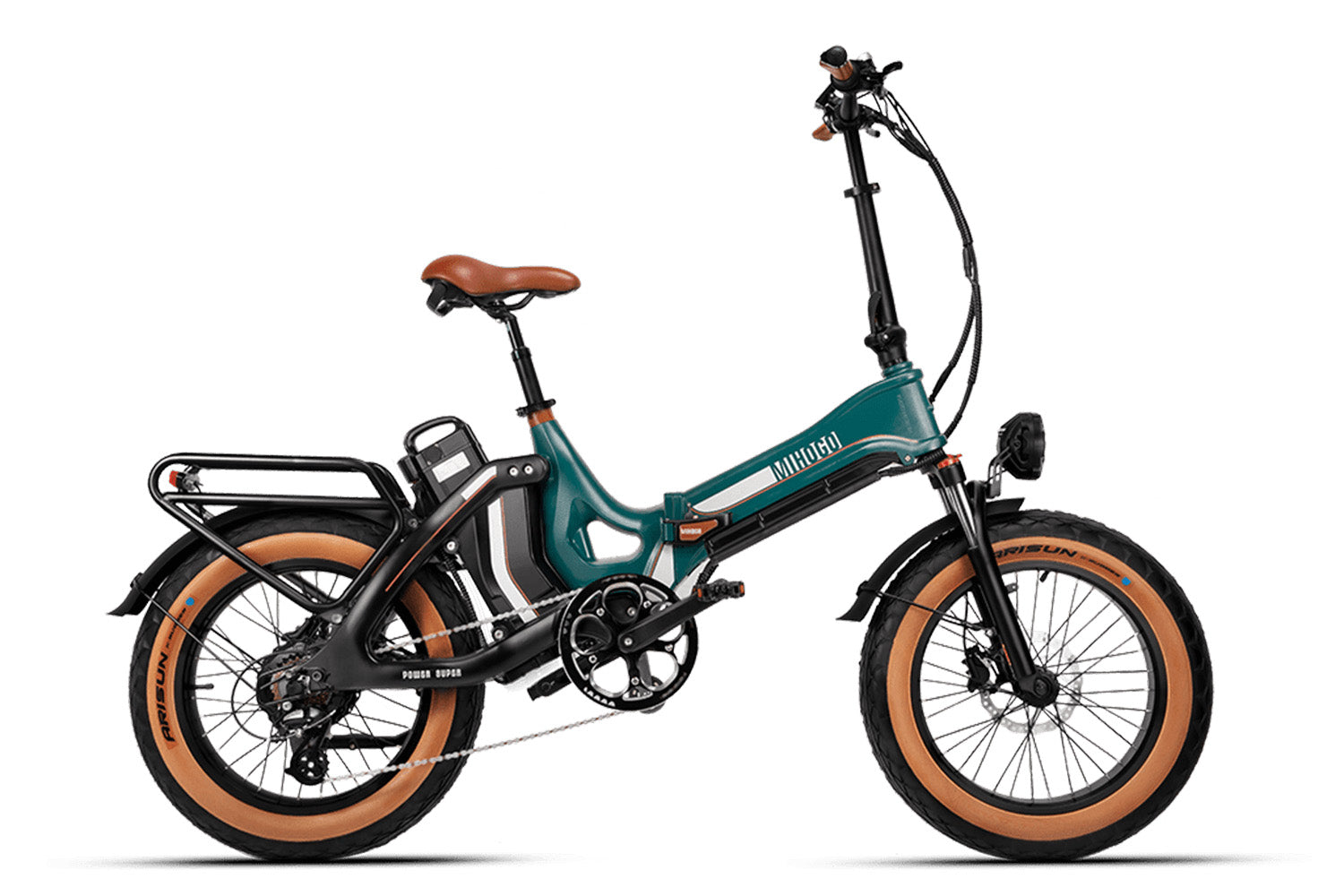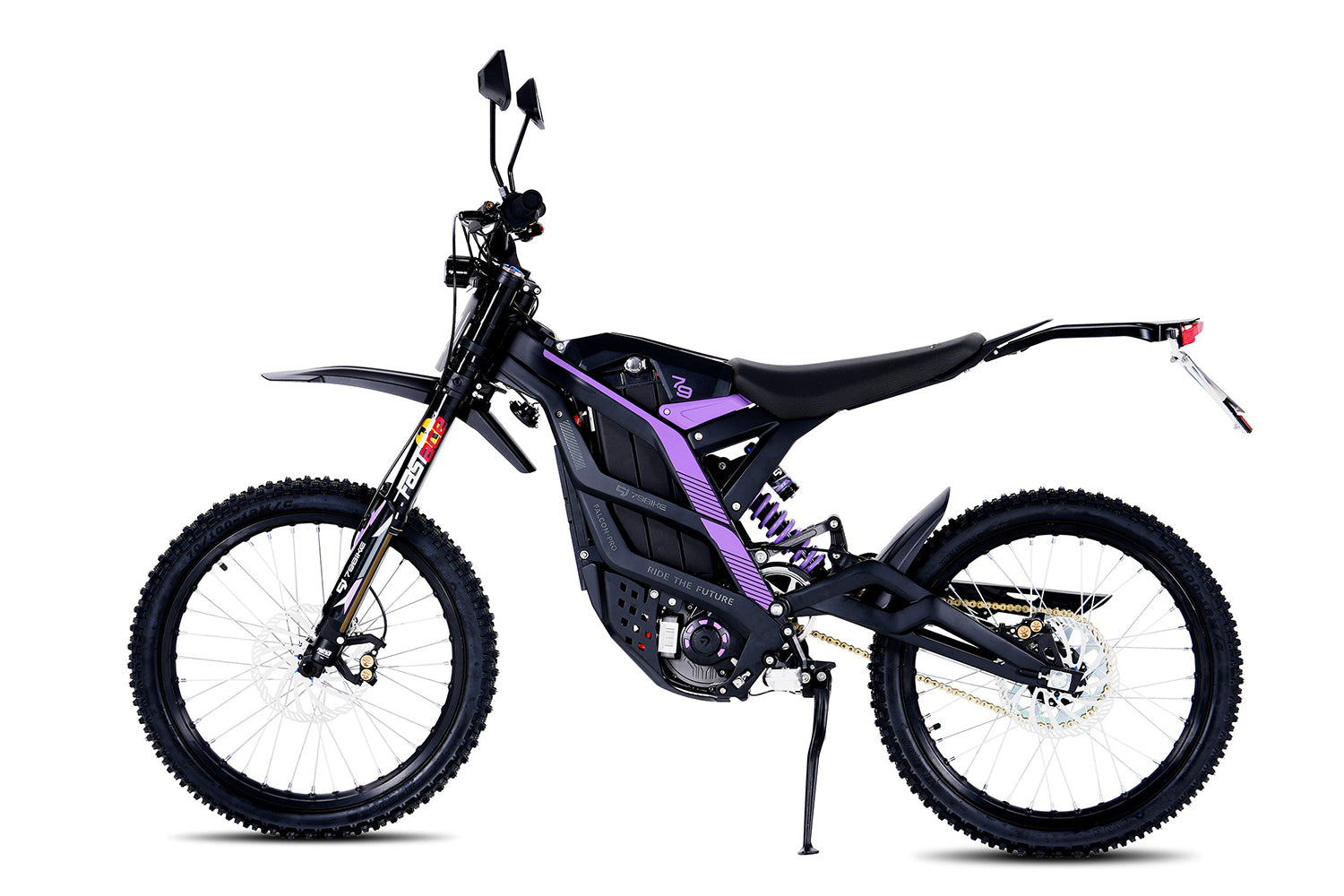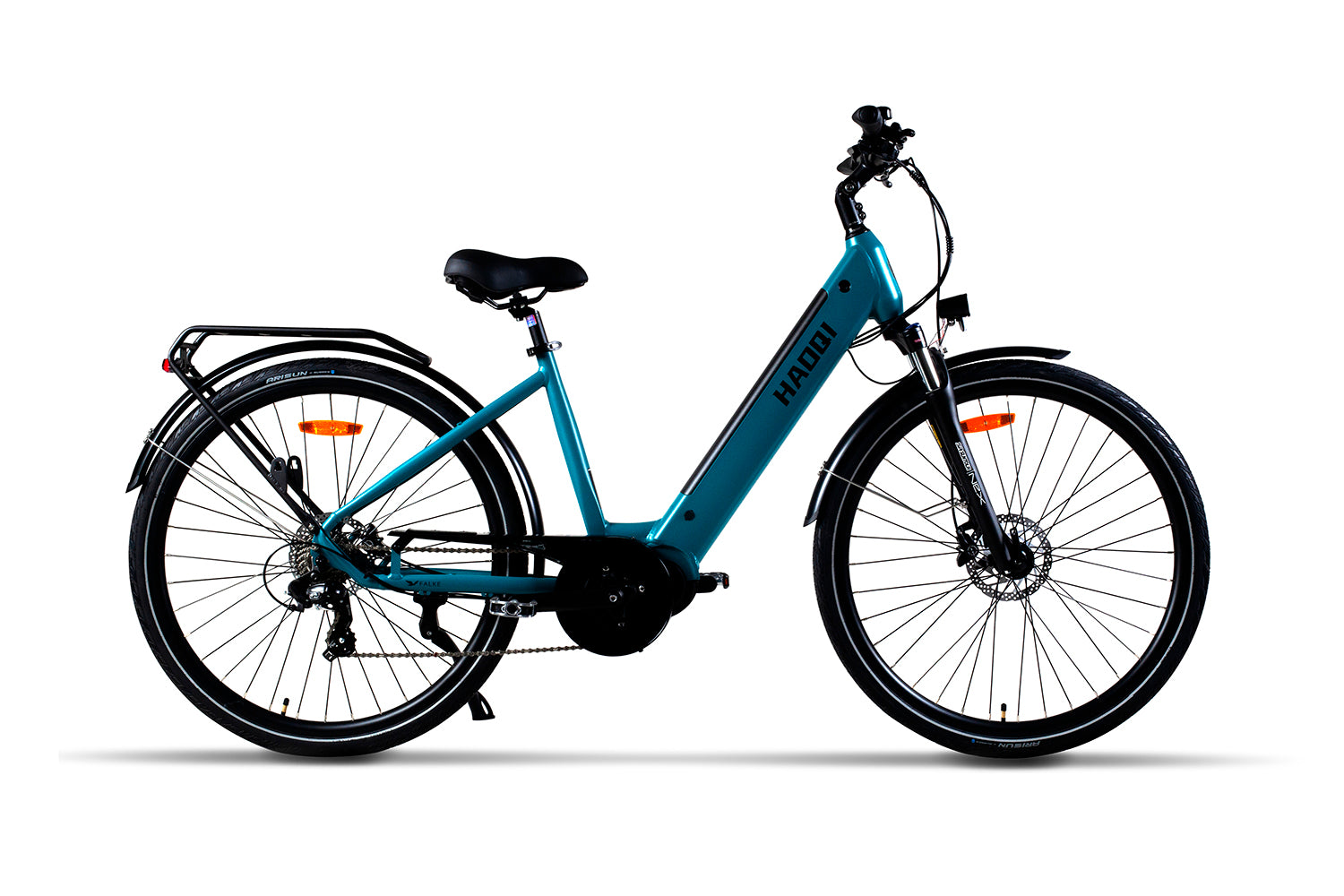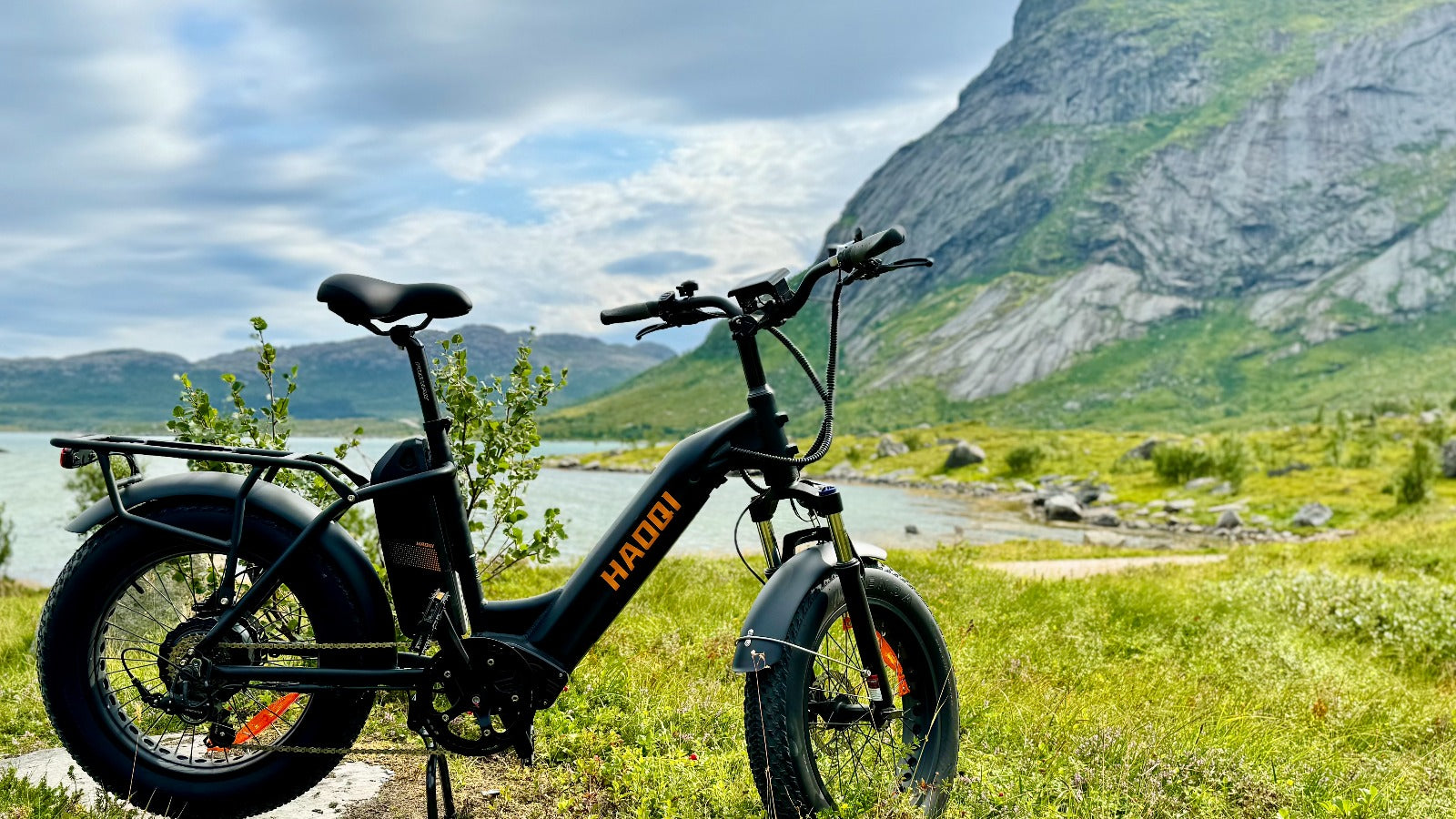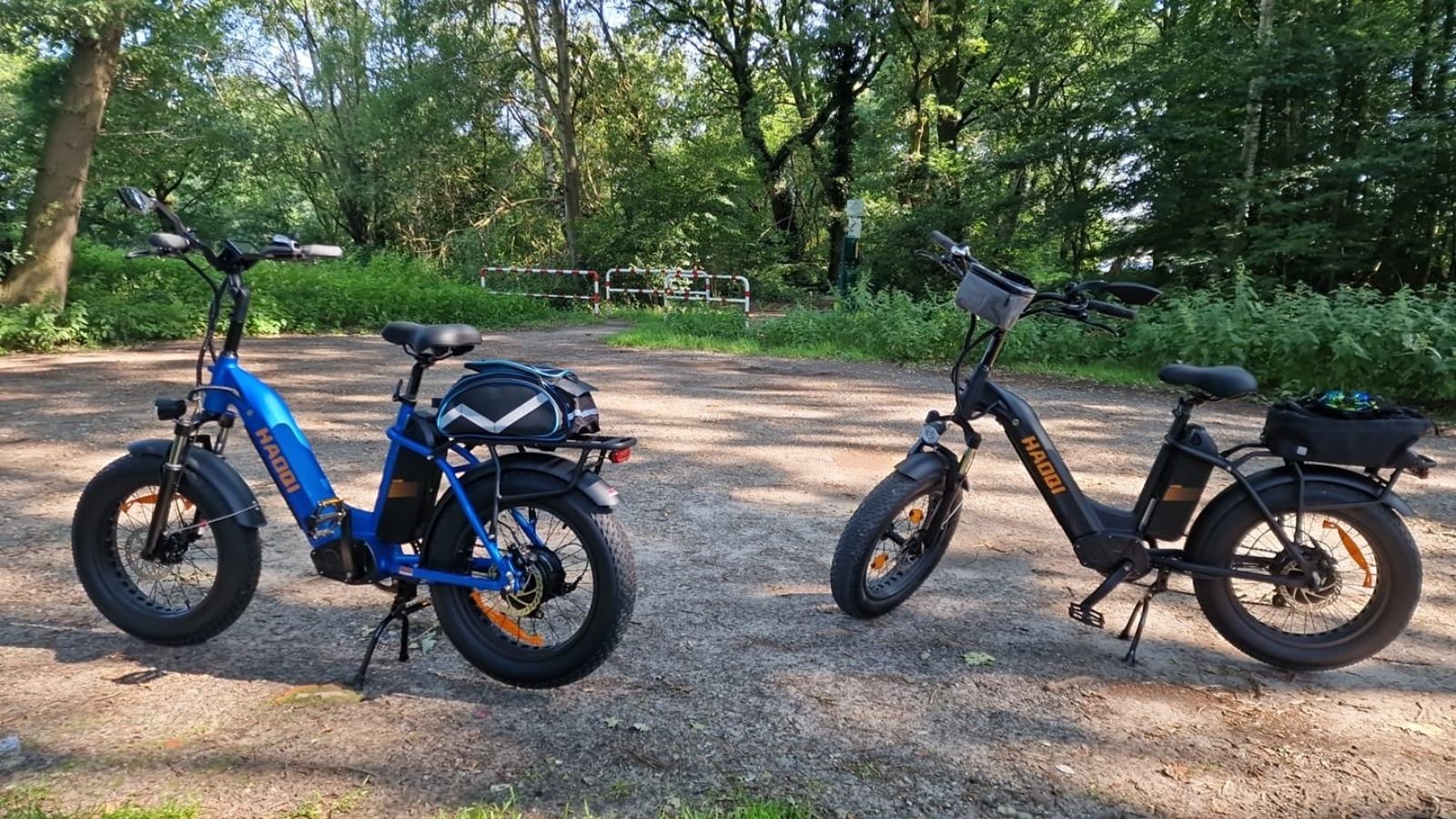When it comes to choosing the best disc brakes for your e-bike, the question often arises: mechanical or hydraulic disc brakes? Both types of brakes offer different advantages and potential disadvantages that affect performance, maintenance and the overall riding experience.
In this article, we'll explain how mechanical and hydraulic disc brakes work, compare their features, and help you find the right system for your needs. Whether you're a recreational cyclist, commuter, or passionate mountain biker, understanding hydraulic and mechanical disc brakes will help you make an informed decision for your e-bike .

Mechanical disc brakes: an overview
Mechanical disc brakes are a fundamental element of many modern bicycles. Let's take a closer look at how they work and what advantages and disadvantages they offer.
How it works
Mechanical disc brakes use a cable-operated system to press the brake pads against the hub-mounted rotor. When you squeeze the brake lever, it pulls a connected cable, which in turn activates a lever or cam mechanism on the brake caliper. This caliper, located near the brake rotor on the frame or fork, contains the brake pads. The cable pulls the pads inward so that they contact the rotor. The friction between the brake pads and the rotor creates the force needed to slow or stop the wheel. When you release the brake lever, the tension in the cable is released and the brake pads retract, allowing the wheel to spin freely again.
Advantages and disadvantages
Mechanical disc brakes have several advantages that make them a popular choice. First, they are typically less expensive than hydraulic brakes, making them a good option for budget-conscious riders. Their simple design allows for easier maintenance and adjustment with basic tools, which is especially beneficial for those who like to do their own bike repairs. They also integrate seamlessly with existing cable-controlled systems on many bikes, ensuring compatibility without extensive modifications.
However, mechanical disc brakes also have some disadvantages. They generally offer less stopping power than hydraulic systems, which can be critical for demanding or high-speed riders. In addition, the cables used can stretch over time, requiring regular adjustments to maintain optimal performance. It is also more difficult to achieve smooth and precise braking modulation with mechanical disc brakes.
Hydraulic Disc Brakes: An Overview
Hydraulic disc brakes represent a significant advancement in bicycle braking technology. Let's take a closer look at how they work.
How it works
Hydraulic disc brakes use fluid (usually brake fluid such as mineral oil or DOT fluid) to transfer power from the brake lever to the brake pads. When you pull the brake lever, it compresses a master cylinder on the lever, which pushes the fluid through a hose to the caliper near the brake rotor. In the caliper, this pressure activates pistons that press the brake pads against the rotor. The pads then clamp onto the rotor, creating the friction needed to stop the wheel. When you release the brake lever, the fluid pressure equalizes, the pistons retract, and the rotor is freed up, allowing the wheel to spin again.
Advantages and disadvantages
Hydraulic disc brakes are known for their excellent performance, characterized by powerful braking capabilities and superior control. These systems allow for smooth and precise control of braking force, allowing riders to precisely adjust braking intensity. Additionally, hydraulic brakes often require less frequent adjustments compared to mechanical systems, making them easier to maintain and more practical for regular use.
On the other hand, hydraulic disc brakes have a higher initial cost and require more complex maintenance. They require special tools and expertise for proper care, which can be challenging for those unfamiliar with hydraulic systems. In addition, handling the brake fluid requires special attention, as problems such as leaks or the need to bleed the system can arise. These problems require careful and regular maintenance to ensure optimal performance and reliability.
Mechanical vs. Hydraulic Disc Brakes: How to Make the Right Choice

When comparing mechanical and hydraulic disc brakes, several factors should influence your decision. Here is a handy guide to help you make the best choice.
-
Consider your budget: Mechanical brakes are less expensive. Budget plays a major role in choosing disc brakes, as mechanical options are usually more cost-effective. If price is a primary concern, mechanical brakes can be a reasonable choice without sacrificing basic braking performance.
-
Review your maintenance skills: Hydraulic brakes require specialist knowledge. Maintenance requirements differ significantly between mechanical and hydraulic brakes. Hydraulic systems require more technical knowledge and special tools for bleeding and fluid management, while mechanical systems are easier to adjust and maintain.
-
Consider the braking feel: Hydraulic brakes offer smoother braking. Hydraulic disc brakes are known for their superior modulation and smooth braking feel, allowing for more precise control of braking force.
-
Evaluate riding conditions: Hydraulic brakes are better suited for wet/muddy trails. Hydraulic disc brakes provide consistent performance in a variety of weather conditions, including wet or muddy conditions, while mechanical brakes can be affected by water and dirt.
-
Evaluate the braking power: Hydraulic brakes offer stronger stopping power. Hydraulic disc brakes typically offer stronger stopping power compared to mechanical brakes, which can be crucial for riders who need strong stopping power, such as mountain bikers or riders with heavy loads.
-
Consider weight: Hydraulic systems are lighter. Hydraulic disc brakes are often lighter than their mechanical counterparts. This weight saving can be beneficial for riders looking to reduce the overall weight of their bike or optimize performance, especially during competitive or long-distance rides.
-
Check the installation: Mechanical brakes are easier to install. Mechanical disc brakes typically require less expertise and special tools to install compared to hydraulic systems. This simplicity can be beneficial for DIY bike mechanics or riders who want to upgrade their brakes without extensive technical knowledge.
-
Consider adjustability: Mechanical brakes are more customizable. Mechanical disc brakes offer more adjustability in terms of brake pad wear, cable tension, and lever feel compared to hydraulic systems. This adjustability can be beneficial for riders who prefer personalized braking performance or want to optimize their brakes for specific riding conditions.
-
Check availability of replacement parts: Mechanical parts are more common. Mechanical disc brakes use standardized components that are widely available, making it easier to find replacement parts or upgrade options. This availability can be beneficial for riders who prefer DIY maintenance or live in areas with limited bike service availability.
-
Evaluate brake fade: Hydraulic brakes resist heat better. Hydraulic disc brakes are less susceptible to brake fade compared to mechanical brakes, especially in conditions where prolonged braking generates heat. This resistance to heat buildup ensures consistent braking performance on long descents or under heavy braking, which is critical for riders tackling challenging terrain or carrying heavy loads.
Conclusion
Choosing between mechanical and hydraulic disc brakes depends on your specific needs and preferences. Consider factors such as maintenance requirements, stopping power and cost to decide which system is best for you. Mechanical brakes offer good value for money and are easier to maintain, while hydraulic brakes offer smoother braking and better performance in a variety of conditions. With these considerations in mind, you can make an informed decision that will ensure your safety, reliability and riding enjoyment.
Frequently asked questions
Which type of brake offers more braking power?
Hydraulic disc brakes typically offer more stopping power and more precise control compared to mechanical disc brakes. This is due to their ability to apply a constant and strong force to the brake pads.
Which type is easier to install and adjust?
Mechanical brakes are easier to install and adjust. They use a simple cable system that requires basic tools and less technical knowledge, making them more user-friendly for most cyclists.
How do they perform in different weather conditions?
Mechanical disc brakes work reliably in a variety of weather conditions, but may require frequent adjustments in wet or muddy conditions to maintain their efficiency. Hydraulic disc brakes, on the other hand, offer superior performance in all weather conditions because their closed systems prevent dirt and moisture from affecting braking performance, making them ideal for challenging weather and terrain conditions.

